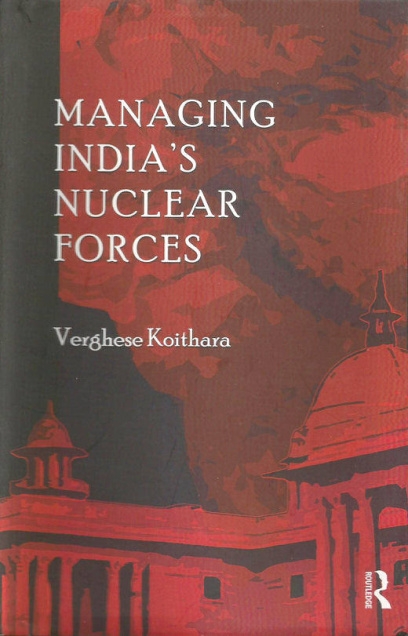international-affairs, politics
The Spread Of Coronavirus Highlights The Failure Of Global Governance
Now that India has saluted, as pre-arranged at 5 PM on 22 March, our fellow citizens fighting on the front line against the deadly spread of corona virus, it is necessary to raise another question: Is India on the forefront among the nations fighting this deadly virus that respects no borders? The answer is painfully clear.
We need to raise one more question: Have we, as humanity, responded to this crisis intelligently and effectively, utilising all our resources, material and spiritual, at the level of individual governments, the civil society, the corporate sector as well as the international organisations such as the WHO, IMF and UN?
There is a general impression that the coronavirus came in without any warning. This impression is wrong. A study done by a virologist at the Wuhan Institute of Virology in 2015 had identified a deadly coronavirus, transmissible to humans from horseshoe bat populations in Wuhan, perhaps with an intermediary such as pangolin. Many virologists and scientists had foreseen and written about the danger of humans catching the virus from bats. A 2017 study found a total of 73 coronaviruses in 1067 bats in China.
We might think only virologists knew about the risk. That is not true. This matter was discussed in a meeting convened by the WHO in early 2018. Dr Peter Daszak, a disease ecologist and president of the New York based Eco Health Alliance, present at that meeting held in early 2018 has pointed out that an outbreak of such an epidemic is not only predictable but also preventable.
Experts drew attention to the G-20 Health Ministers meeting held in March 2018 to the risk of such an epidemic originating from bats. In a paper in a scientific journal, Zheng-Li Shi, an eminent virologist from China, wrote:
"During the past two decades, three zoonotic coronaviruses have been identified as the cause of large-scale disease outbreaks-Severe Acute Respiratory Syndrome (SARS), Middle East Respiratory Syndrome (MERS), and Swine Acute Diarrhea Syndrome (SADS). SARS and MERS emerged in 2003 and 2012, respectively, and caused a worldwide pandemic that claimed thousands of human lives, while SADS struck the swine industry in 2017. They have common characteristics, such as they are all highly pathogenic to humans or livestock, their agents originated from bats, and two of them originated in China. Thus, it is highly likely that future SARS or MERS-like coronavirus outbreaks will originate from bats, and there is an increased probability that this will occur in China."
Obviously, neither the WHO nor the G-20 paid attention. Neither the Wuhan government nor the central government in Beijing considered closing down the potentially dangerous Huanan Wholesale Sea Food Market in Wuhan selling bats. Nor did WHO raise the matter with China,
The market was closed down only on January 1, 2020
If that market had been closed down in January 2019, would we be seeing the death of thousands of fellow human beings in 2020?
China
Though China informed the WHO on December 31, 2019, scientists have concluded that the disease would have started occurring by the end of November. China could have and should have informed WHO at least six weeks earlier.
Dr Li Wen Liang, 34 - who spoke out on the danger before China informed the WHO - was reprimanded by the police. Dr Li died in February. He has been posthumously "exonerated" and action has been taken against two police officials, perhaps no more than a PR exercise.
Despite the initial effort to suppress information, after China notified the WHO, they acted with diligence. Consequently, the contagion has now peaked with no fresh cases, except for nationals returning from abroad. But by then it was very late. With a death toll of 3261, the country paid a heavy price, not to mention the heavier price being paid by the rest of the world.
Italy
The death toll in Italy, at over 6000, is about to be double that of China's. Per million population the number of cases is 56 for China and 679 for Italy. The first confirmed cases were on 31 January, when two Chinese tourists tested positive. The same day, flights to and from China were suspended.
It would appear that the draconian measures adopted by Italy have slowed dowN, but not prevented the community transmission of the disease. It follows that such draconian measures would have been more effective if taken earlier. Is there a point of no return, and if so, how is it to be identified?
There is one more factor about Italy worth examining without coming to conclusions in the absence of hard evidence. A certain number of Chinese immigrants, working in the textile and leather sectors, come into northern Italy. They produce textiles and other products cheaper than Italian companies.
In some cases, these companies buy Chines-produced goods and sell them as their own. Whether such an arrangement contributed to the crisis or not, some Italians have displayed xenophobia towards individual Chinese or Asians from the Philippines and other countries. Obviously, aproper scientific study has to wait.
Though northern Italy has an advanced health care system, the sad situation is that, given the shortage of intensive care units, doctors have to choose who and who dies, We should realise that no country has the capacity to deal with such a pandemic when it has spread to a sizeable section of the population.v
There is no real European Union as Italy's request for aid was rejected by the rest of the Union
In contrast, China and Russia have come to Italy's aid.
Spain, France, Germany
After Italy, Spain is the worst affected with 35136 active cases and a death toll of over 2300. France has 19856 cases with a death toll of 860. Germany has 29056 cases with a toll of 123. The reader might note that Germany, with half the number of active cases in Italy, has a sharply lower death toll.
The German chancellor, Angela Merkel, stated on March 11, 2020, that there was reason to fear that 70 per cent of the Germans, equal to 58 million, can get infected.
United Kingdom
After living in a state of denial for almost two months, the British Prime Minister, Boris Johnson has woken up from his dogmatic slumber, and has started acting. One important feature is the financial assistance to those who lose jobs.
United States
Donald Trump also took time to wake up New York and other big cities are under lockdown.
Trump gladly reduced the funds and importance Obama attached to disaster preparedness.
There is speculation that the coronavirus might come in the way of his re election.
South Korea, Japan, Taiwan, and Singapore
These countries neighbouring China have done exceedingly well as compared to the West, in addressing the pandemic South Korea has 172 cases for million population Japan 8, and Singapore 74.
Taiwan denied WHO membership by China, is in special case of astonishing diligence and pro active thinking, rapidly recognised the danger despite WHO's misleading pronouncements before declaring them here is a pandemic 11 March.
Taiwan started inspecting passengers from Wuhan before deplaning in an informal fashion from early December 2019 and made it formal on 31 January, the day China informed WHO of the disease; they also banned Wuhan residents from coming on 23 January and suspended all tours to China on 25 January. In contrast, Washington banned the entry of passengers who had been in China only on February 2, 2020.
Taiwan learned the right lessons from the 2003 SARS crisis, which lead to 1 deaths. It created a Central Epidemic Command Center (CECC) which could be activated this time. How many countries have a similar set-up? Taiwan has had only one death so far:
WHO's Failings
It is necessary and unavoidable to point out that the WHO could haye and should have - done more. It proceeded at a snail's pace in recognising the gravity of the epidemie. On 22 January, the Director General (DG) said he was postponing a decision on declaring a Public Health Emergency of International Concern (PHEIC), a declaration that was finally made on January30, 2020.
The WHO chose not to advise any travel restrictions even as it recognised that "human to human transmission has occurred outside Wuhan and outside China." The same erroneous conclusion about travel was repeated on February 27. when WHO held a meeting with WTO (World Tourism Organization). In contrast, India did ban the entry of passengers from China.
Why did WHO act in this manner? This requires to be investigated. But it is clear that over the hears the WHO has been losing its leading role in promoting and preserving public health, and in norm setting. One of the main reasons for this sad state of affairs is the funding crisis the WHO has been facing, for years, on two counts.
First, the size. Its budget is about 30 per cent of the Atlanta-based Centre for Disease Control and Prevention and, even more pathetically, 1 per cent of the money spent on advertisement by the pharmaceutical companies in the US.
The second constraint is that only 20 per cent of the WHO budget comes from compulsory contributions from member states and the rest, 80 per cent, comes from voluntary contributions, indeed a sure recipe to make an international organisation weak. There is speculation that the WHO did not want to displease China, a top contributor.
India's Response
India should have declared a lock-down by January February - and that too in a methodical manner. For example, we all know that inter-state trains should not be cancelled without due notice. There are thousands working in Mumbai who would need to go back home if the lock down throws them out of work. Would it have been possible to arrange for trains to run with passengers sitting at the required distance from each other?
The Government Of India (GO) made the mistake of announcing that there was no need to test suspected cases unless there was proot of contact with a foreign returned person or had a travel history. The reason was India lacked testing capacity. Moreover, they argued that it was not necessary to test every suspected case.
The second mistake was that a group of ministers, chaired by the minister of health, took major decisions of wide-ranging consequences - decisions that should have been taken by the Cabinet or the Cabinet Committee on Political Affairs. According to the Rules of Business, the concerned ministry would prepare a cabinet note to be circulated by the cabinet secretary to other concerned ministries for comments.
The cabinet secretary is to organise the comments with a forwarding note for the cabinet. He could call for a meeting of secretaries to modify the note so that the cabinet gets a full picture of the options, pros and cons, and more.
We are fortunate to have a capable medical doctor as the minister of health. It would have been good if he had constituted an advisory committee consisting of eminent doctors from AIIMS and other hospitals along with outside specialists to advise him. If he had done that, the mistaken argument about restricting tests would not have been advanced.
Negligent Response
Coming to the larger question of humanity's response, the answer is clear. This is a historic failure. A good part of the responsibility for such failure goes to President Trump who was disastrously slow in recognising the gravity of the danger. On February 19, 2020, he said:
"I think it is going to work out fine. I think when we get to April, in the warmer weather that has a very negative effect on that type of virus."
Let us recall that the WHO had declared a public health emergency nineteen days before Trump spoke and the CDC had voiced concerns about a likely pandemic.
What is worse than irresponsible public statements is Trump's failure to listen to intelligence and his own health secretary. By January 31, 2020, over 195 Americans had been evacuated from Wuhan and put under quarantine. Yet, the Health and Human Services Secretary Alex Azar could not get his President's attention. When Azar wanted to brief the President about the coronavirus, he was more interested in discussing vaping the electronic cigarette.
The world being what it is it, when Washington takes note of an issue the rest of the world follows.
The European Union could have played this role to an extent. Alas, they did not even try to do it.
Coming to civil society, while we do not have adequate information, we know that some NGOs in Malaysia put up stranded Indian students. In Kerala, churches, NGOs, and colleges have made masks and sanitisers and given gratis to those in need.
The Need For Global Financial Support
Coming to the corporate sector, big US companies such as Microsoft, Dell, and Cargill have contributed millions of dollars to China. The Bill and Gates Foundation has also contributed $100 million to fight the virus in the US. It is obvious that the rich corporates can do more, especially in developing countries.
Iran, deeply in trouble with an economy destroyed by the totally unjustified sanctions imposed by Trump, has requested the IMF for a loan of $5 billion. This is the first time in sixty years that Iran has sought IMF funds.
A spokesperson for the IMF "had discussions with the Iranian authorities to better understand their request for emergency financing and that the discussions will continue in the days and weeks ahead. However, Washington has a veto. In a more rational world, the US sanctions would have been suspended and the IMF would have offered the loan without Iran asking for it.
In Delhi there is confusion. Passengers landing at the airport have waited for 8 hours or more for the medical vetting. The DGCA (Directorate General of Civil Aviation) issued imprecisely worded instructions to airlines and many Indians on their way to India were refused passage by airlines.
This is not the time to find fault. However unless we know what went wrong, we won't be able to fix it.
For India, the lockdown should continue with increased testing, and adequate measures to support the poor. There is a need for a united government for national safety. If that is not feasible, given the inability of politicians to work together, the Prime Minister should constitute a core group including the opposition.
Globally, the UN Secretary-General should hold a virtual Conference with the G20 at the summit level and work out a scheme to help the non-G-20, especially the countries in the South with money, technical advice, and supplies. Iran should get the support it needs.
The IMF has the capacity to lend Si trillion. This should be used as expeditiously as possible Some countries might not have the expertise to make proposals as required by the IMF, and this is the time to help them make proposals and move on a war-footing.
I Heard Prime Minister Narendra Modi's second address to the nation a few hours ago. He has announced a 21 day lockdown and pleaded with the citizens of India not to move out of their homes. However, we did not have clarity on how to get food and other essentials or even go to the hospital. In Delhi, many did not wait for the Prime Minister to complete his address as they rushed to food shops and they were emptied in short order.
Of course, a few minutes after the speech, I received a text of Home Ministry's Order making it clear that food shops would remain open. Though the media is sharing this news, would it not lead to panic buying? Is this absolute lockdown enforceable without clear guidelines?
The above article written by Ambassador K.P. Fabian
Credits:-
https://madrascourier.com/opinion/the-spread-of-coronavirus-highlights-the-failure-of-global-governance/
March 25th, 2020 | category:international-affairs, politics |

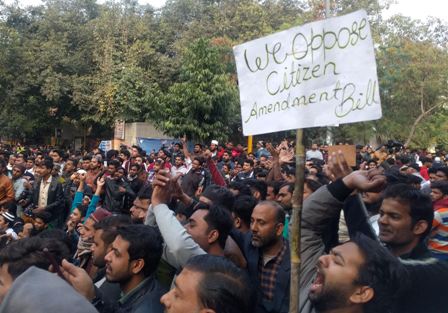
 What is most striking and heartening about the widespread demonstrations against the CAA (Citizenship Amendment Act 2019) and the NRC (National Register of Citizens) is that citizens from practically all walks of life, cutting across many a divide, are united in fighting to preserve the idea of India enshrined in the 1950 Constitution.
The young and the old, lawyers and teachers, have come out onto the streets, often ignoring Section 144 prohibiting such gatherings. This shows that many have shed their fear of the police, despite the deplorable brutality exhibited by the latter. This is the case in Jamia Milia University, established in 1920 by a group of eminent Muslim leaders with support from Mahatma Gandhi and Rabindranath Tagore.
What is most striking and heartening about the widespread demonstrations against the CAA (Citizenship Amendment Act 2019) and the NRC (National Register of Citizens) is that citizens from practically all walks of life, cutting across many a divide, are united in fighting to preserve the idea of India enshrined in the 1950 Constitution.
The young and the old, lawyers and teachers, have come out onto the streets, often ignoring Section 144 prohibiting such gatherings. This shows that many have shed their fear of the police, despite the deplorable brutality exhibited by the latter. This is the case in Jamia Milia University, established in 1920 by a group of eminent Muslim leaders with support from Mahatma Gandhi and Rabindranath Tagore.
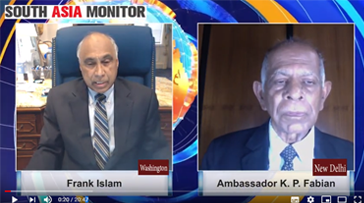
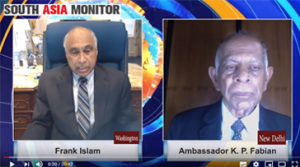
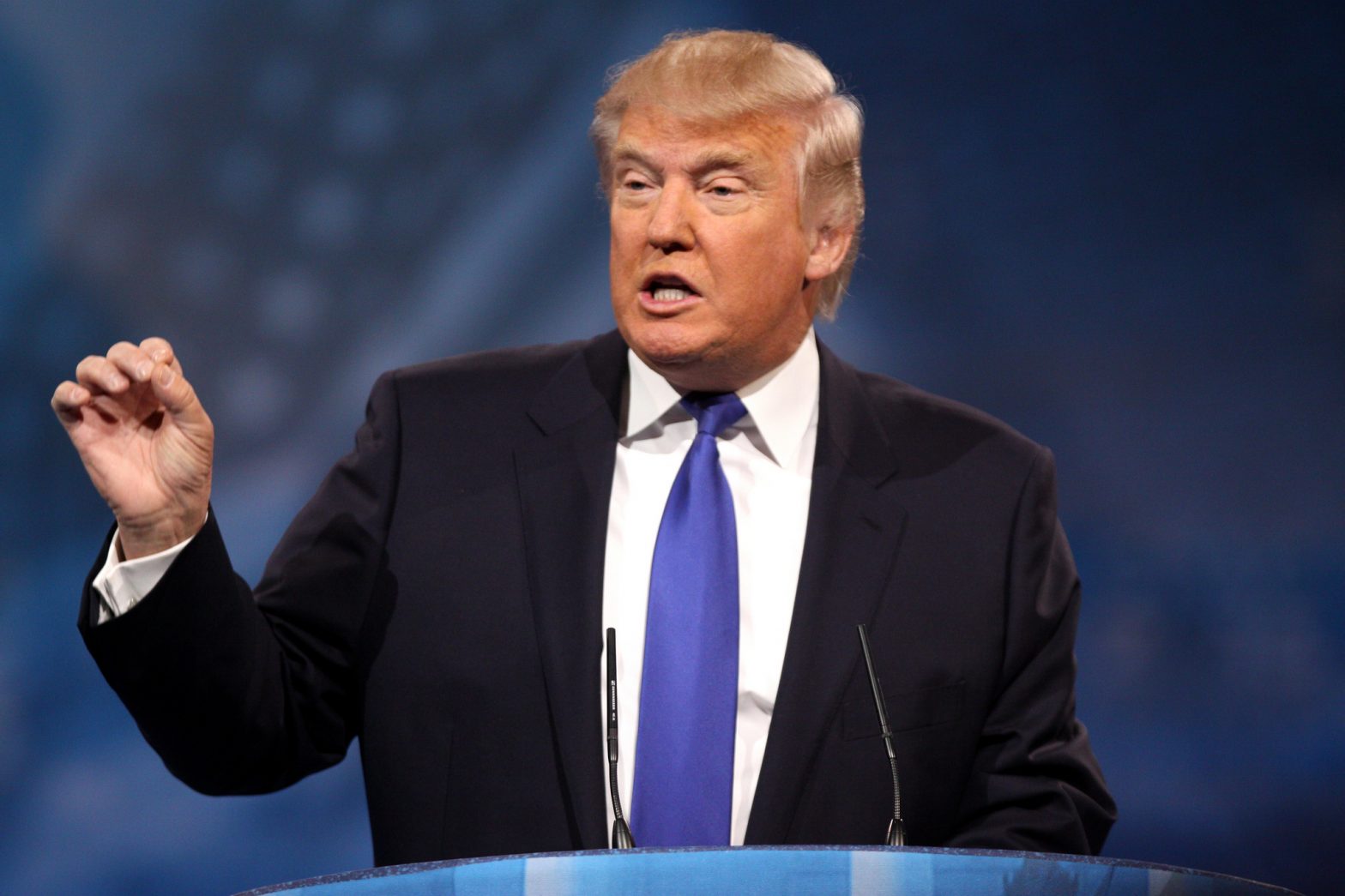
 On 8 May 2018, US President Donald Trump, true to his style and ‘America First’ philosophy, walked out of the Iran nuclear deal, technically known as the Joint Comprehensive Plan of Action (JCPOA). A fortnight has elapsed and it would be pertinent to examine the geopolitical implications of Trump’s decision.
On 8 May 2018, US President Donald Trump, true to his style and ‘America First’ philosophy, walked out of the Iran nuclear deal, technically known as the Joint Comprehensive Plan of Action (JCPOA). A fortnight has elapsed and it would be pertinent to examine the geopolitical implications of Trump’s decision.
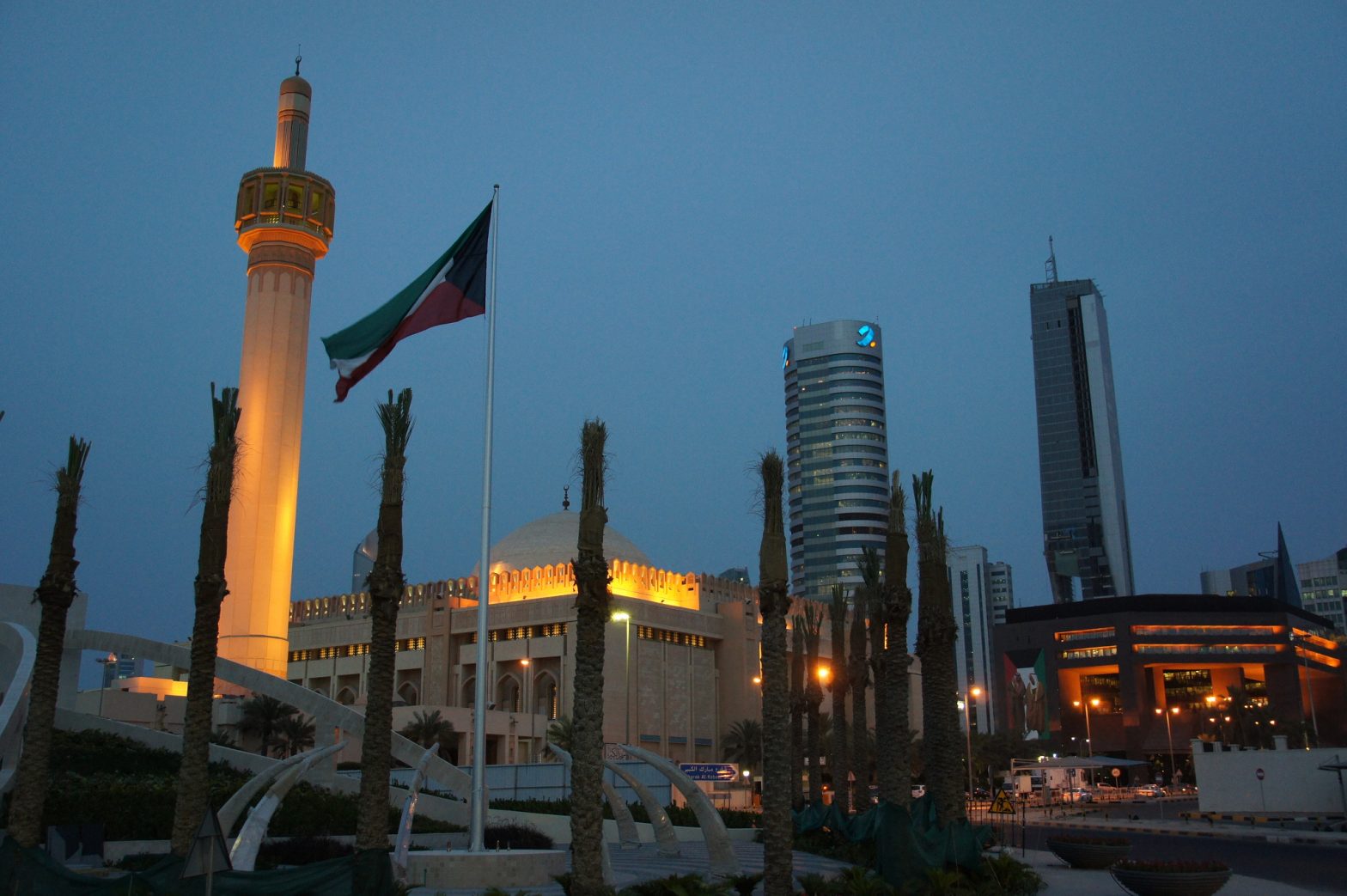
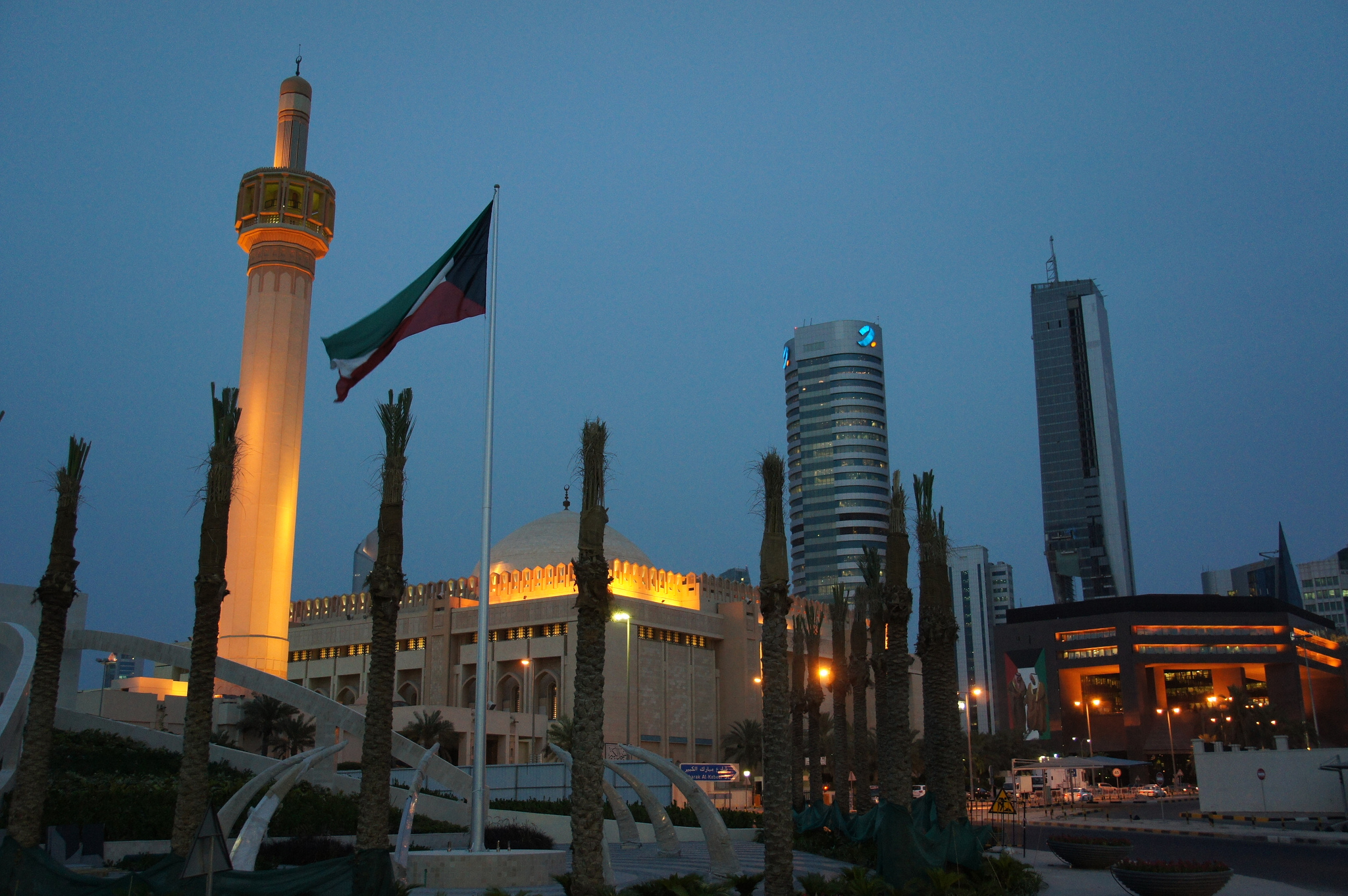 The failed GCC summit points to a stalemate in West Asia that might last for a while, adversely affecting the economies of its members, and only a change in Saudi policy can reunite the squabbling kingdoms.
The aborted Gulf Cooperation Council (GCC) summit in Kuwait scheduled for December 5-6 raises the question whether this regional integration project, until recently one of the more successful of such projects, has collapsed or not. When the GCC was formed in 1981, the main motivation was to address the perceived threat from Iran by raising the level of synergy among the member-states who had much in common. Even without hindsight it can be said that the threat from Iran was exaggerated.
It is paradoxical that Qatar, one of the founding members, has been compelled to embrace Iran owing to Saudi Arabia’s actions. In short, Saudi Arabia, while seeking confrontation with Iran in order to weaken its bete noire, has only strengthened it.
Let us look at what happened in Kuwait. The Emir of Kuwait, Sheikh Sabah, 88, was working hard to reconcile Saudi Arabia and Qatar even before the blockade against Qatar was announced by Saudi Arabia, the United Arab Emirates (UAE), Bahrain and Egypt on June 5, 2017.
The failed GCC summit points to a stalemate in West Asia that might last for a while, adversely affecting the economies of its members, and only a change in Saudi policy can reunite the squabbling kingdoms.
The aborted Gulf Cooperation Council (GCC) summit in Kuwait scheduled for December 5-6 raises the question whether this regional integration project, until recently one of the more successful of such projects, has collapsed or not. When the GCC was formed in 1981, the main motivation was to address the perceived threat from Iran by raising the level of synergy among the member-states who had much in common. Even without hindsight it can be said that the threat from Iran was exaggerated.
It is paradoxical that Qatar, one of the founding members, has been compelled to embrace Iran owing to Saudi Arabia’s actions. In short, Saudi Arabia, while seeking confrontation with Iran in order to weaken its bete noire, has only strengthened it.
Let us look at what happened in Kuwait. The Emir of Kuwait, Sheikh Sabah, 88, was working hard to reconcile Saudi Arabia and Qatar even before the blockade against Qatar was announced by Saudi Arabia, the United Arab Emirates (UAE), Bahrain and Egypt on June 5, 2017.
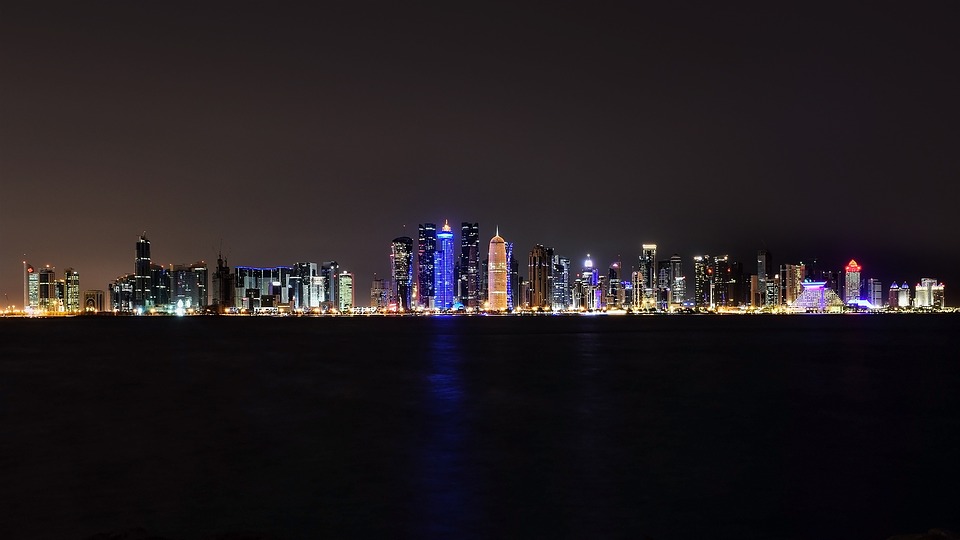
 Saudi Arabia, United Arab Emirates (UAE), Bahrain and Egypt had listed 13 demands on June 23, 2017, warning that there would be serious consequences if Qatar failed to yield by July 2. Qatar rejected the ultimatum and the four countries have not yet carried out their threats. Instead, they have softened their stand, vaguely signaling that it might be enough if Qatar were to accede to ‘Six Principles’. In short, there has been no escalation and we can clearly see a degree of de-escalation.
Saudi Arabia, United Arab Emirates (UAE), Bahrain and Egypt had listed 13 demands on June 23, 2017, warning that there would be serious consequences if Qatar failed to yield by July 2. Qatar rejected the ultimatum and the four countries have not yet carried out their threats. Instead, they have softened their stand, vaguely signaling that it might be enough if Qatar were to accede to ‘Six Principles’. In short, there has been no escalation and we can clearly see a degree of de-escalation.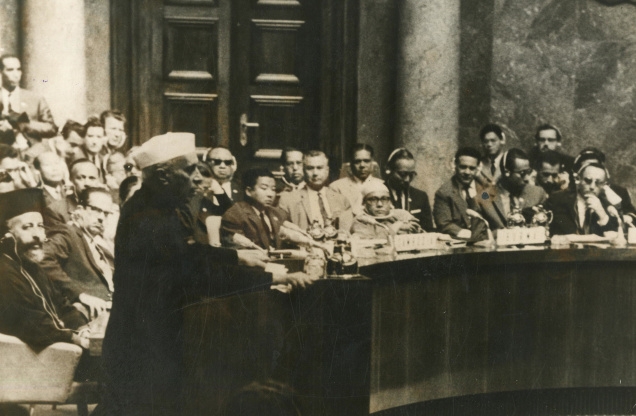
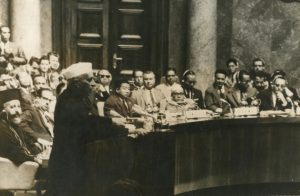 Nehru’s pragmatic diplomacy gave a newly independent India a stature in world affairs much above its economic and military power and guided it deftly in a world being polarised by the Cold War
THE PEOPLE OF INDIA HAVE GOOD reason to be upset about the manner in which the 125th birth anniversary celebrations of Jawaharlal Nehru have begun, marked as they were by petty partisanship and unseemly attempts at settling of scores. Most people would have expected the political leadership to rise above inter-party differences and to unite and celebrate in a mature manner an anniversary of such national importance. Sixty-five per cent of Indians are under 35 years of age and for them it might have been rather puzzling that their elders should find it difficult to behave in a mature manner on an occasion like this.
A good part of the electronic media, with their debates where often more than one person speaks, or rather, the persons involved shout at each other with the anchor not able to enforce minimum courtesy levels, has only enhanced confusion in the minds of the viewers. Nehru, if he were to come back today, would have been appalled at the level of discourtesy displayed in such debates. He had a quick temper, but he was always courteous. Perhaps the debaters and anchors can consider paying a tribute to Nehru by taking a pledge to be courteous to each other from now onwards as their contribution to the ongoing celebration.
Nehru’s pragmatic diplomacy gave a newly independent India a stature in world affairs much above its economic and military power and guided it deftly in a world being polarised by the Cold War
THE PEOPLE OF INDIA HAVE GOOD reason to be upset about the manner in which the 125th birth anniversary celebrations of Jawaharlal Nehru have begun, marked as they were by petty partisanship and unseemly attempts at settling of scores. Most people would have expected the political leadership to rise above inter-party differences and to unite and celebrate in a mature manner an anniversary of such national importance. Sixty-five per cent of Indians are under 35 years of age and for them it might have been rather puzzling that their elders should find it difficult to behave in a mature manner on an occasion like this.
A good part of the electronic media, with their debates where often more than one person speaks, or rather, the persons involved shout at each other with the anchor not able to enforce minimum courtesy levels, has only enhanced confusion in the minds of the viewers. Nehru, if he were to come back today, would have been appalled at the level of discourtesy displayed in such debates. He had a quick temper, but he was always courteous. Perhaps the debaters and anchors can consider paying a tribute to Nehru by taking a pledge to be courteous to each other from now onwards as their contribution to the ongoing celebration.
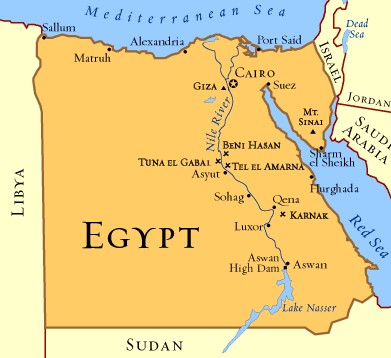
 Now that three years have elapsed since the 2011 Revolution in Egypt, it is pertinent, nay, imperative, to ask the central question: Where is Egypt? Where is it going? On January 25, 2011 Egyptians shed fear of their repressive government that had deprived them of their human rights for decades and gathered in the world famous Tahrir Square to demand that President Hosni Mubarak resign. Mubarak, in office for thirty years, fell eighteen days later. Millions of Egyptians in Tahrir Square and elsewhere saw the exit of Mubarak as signaling the beginning of Egypt’s journey towards democracy. Three years later, it is painfully clear that Egypt has lost its way towards democracy; in fact, it is heading fast in the opposite direction. The police state under Mubarak is being restored; freedom of expression has been drastically abridged; dissent does provoke punishment; political prisoners total up to twenty one thousand; and political demonstrations need prior permission. Egypt is under military rule and a field marshal is soon going to be elected president.
Now that three years have elapsed since the 2011 Revolution in Egypt, it is pertinent, nay, imperative, to ask the central question: Where is Egypt? Where is it going? On January 25, 2011 Egyptians shed fear of their repressive government that had deprived them of their human rights for decades and gathered in the world famous Tahrir Square to demand that President Hosni Mubarak resign. Mubarak, in office for thirty years, fell eighteen days later. Millions of Egyptians in Tahrir Square and elsewhere saw the exit of Mubarak as signaling the beginning of Egypt’s journey towards democracy. Three years later, it is painfully clear that Egypt has lost its way towards democracy; in fact, it is heading fast in the opposite direction. The police state under Mubarak is being restored; freedom of expression has been drastically abridged; dissent does provoke punishment; political prisoners total up to twenty one thousand; and political demonstrations need prior permission. Egypt is under military rule and a field marshal is soon going to be elected president. 